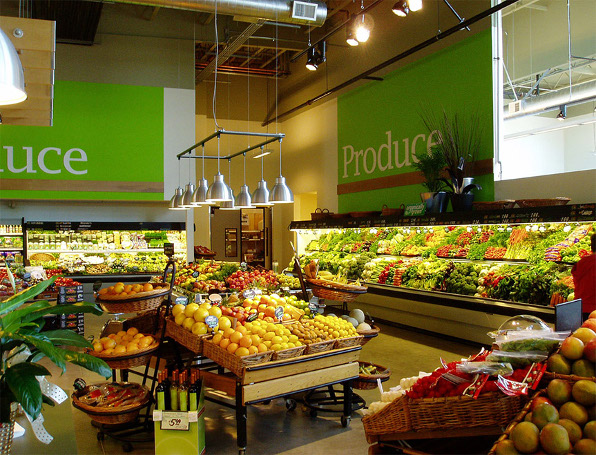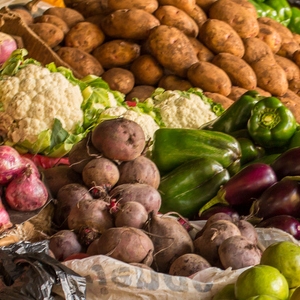A recent survey revealed that Canadians are generally in favour of incorporating more locally-grown food in their diets, but won’t pay more to get it. ‘Why?’ asked agrifood experts at Dalhousie University researchers in Halifax. Dr. Obvious says that, in our hearts, we all know why…
 Would you choose locally-grown produce if you
Would you choose locally-grown produce if you
could get it at competitive prices year round?
Could it possibly be the pandemic?
Millions of Canadians are experiencing severely curtailed household incomes due to the economic closures caused by the COVID-19 pandemic. Speaking for myself, I’m glad to be able to get the vast majority of the fresh foods I want at any price, in spite of the widespread social and commercial disruption that’s being caused by the pandemic. (The good Dr. has nothing to add, there; just smiles.)
Having dispensed with the truly obvious, though, there’s more to Canadians’ resistance to foods grown locally in the ‘off season’ than first meets the eye. And it’s those considerations the researchers wanted to investigate.
What they did
Dr. Sylvain Charlebois at Dalhousie and his colleagues analysed survey information from research firm Caddle, which asked 10,266 Canadians about local food. This survey targeted attitudes about local food rather than hard data points like price. How did Canadians define ‘local’? Would they go out of their way to get locally produced food? How do they see the healthfulness of food grown locally out of season, in greenhouses compared to traditionally grown in-season foods?
What they found
Charlebois says his team found that a significant number of younger Canadians have some doubts about the healthfulness of greenhouse-grown foods, especially those grown in artificial soil substitutes or hydroponically, which are usually grown with chemical fertilizers and other artificial cultivation aids.
The survey numbers indicated that chefs and professional cooks in general had strong preferences for foods grown ‘naturally’, in the field, over greenhouse-grown produce.
There’s also confusion about how Canadians define ‘locally grown’ foods. Some think regionally while others think in political terms (i.e.- within their provinces’ borders). It appears tat some folks want their money spend on ‘local’ foods kept closer to home so it will do the most good for their friends and neighbours in the farming business, especially if the food is going to cost more.
“You have to make sure that these foods remain affordable 12 months a year,” Charlebois told The Toronto Star, adding that any investment that could make local food cheaper would be a ‘game changer’.
The takeaway
Charlebois and his cohort need to work on promotional approaches that will encourage folks to choose ‘local’ foods over imports, regardless of their natural misgivings over healthfulness and objections to higher costs.
These changes won’t be as easy as flipping a couple of light switches. But the survey report does point out that, if the objections can be overcome and prices can be reduced to a level competitive with imported produce, Canada can easily develop the capacity to become sustainably food independent.
My take
Sustainable food independence? Not a bad goal, especially if it’s doable on a practical basis. So, let’s get on with it, and pour some significant effort and cash into making this goal a reality!
~ Maggie J.

